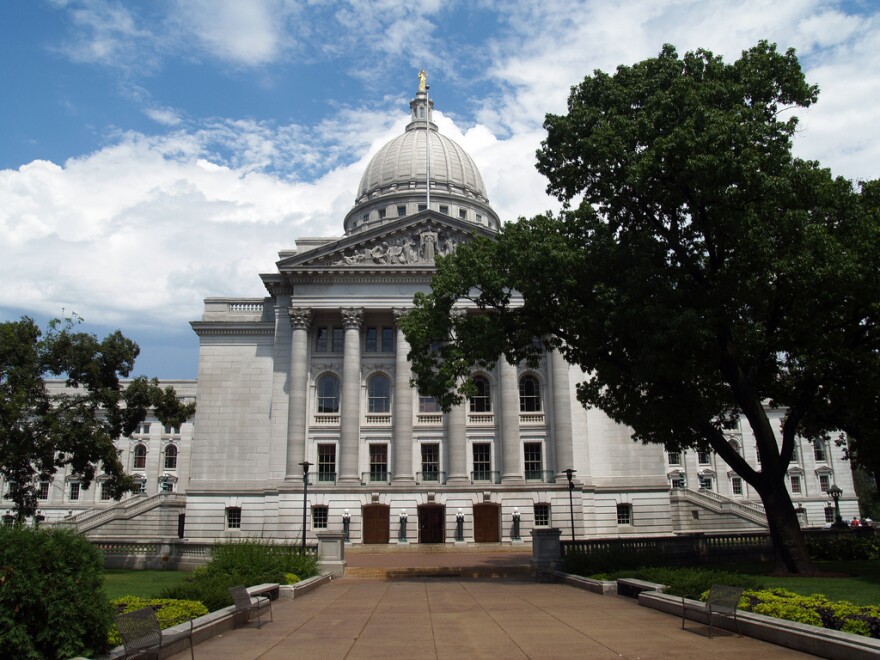For an update on this story, read this post: Wisconsin Assembly Passes Measure Calling For Constitutional Convention
An Assembly committee has advanced the idea of Wisconsin joining a states-initiated constitutional convention to draft a federal balanced budget amendment. Thirty-four states are needed; Wisconsin could become number 30.
Both sides here insist the issue is essential to the country’s survival. Supporters of the amendment say the country is drowning in debt, with an estimated deficit pegged at $20 trillion. Opponents say an amendment would tie federal leaders' hands and expose the country to a runaway convention with few rules.
Americans have tried thousands of times to amend the U.S. Constitution and succeeded only about 30 times. The process the country has followed each time, as Article V spells-out, is that two-thirds of Congress must support the amendment, and then three-quarters of the states must ratify it.
However, Article V provides another avenue for amending the Constitution, one the states have never used, but some are now pursuing. If 34 Legislatures agree, Congress must convene a states’ convention to consider an amendment.
Republican state Senator Chris Kapenga is pushing the plan in Wisconsin. He says the national deficit is dangerously out of control, and federal leaders are not taking corrective action.
“Our national debt now totals nearly $20 trillion, which most of us don’t even know how many zeroes that is, or, $165,000 per taxpayer. Unmistakable consequences are evident. Former President Obama’s commission on fiscal responsibility and reform made the following plea, to no avail. ‘If the U.S. does not put its house in order, the reckoning will be sure and the devastation severe,'” Kapenga says.
The devastation, according to Kapenga, could mean a country beholden to foreign nations and investors, to massive IOUs, and with crucial programs that suddenly have no funding.
Opponents of a balanced budget amendment insist it would tie the hands of federal leaders, particularly during economic disasters, and that a constitutional convention itself would jeopardize the country and people's rights. Stephanie Ash, a volunteer with the ACLU of Wisconsin, told a panel of state lawmakers that there are no federal rules governing what the delegates can do.
“A constitutional convention may not be confined to a single subject, nor is there any way to protect against a convention rewriting our nation’s founding document, wholesale. This means, that those calling for various rights-limiting constitutional amendments, in years past, will undoubtedly advocate for additional changes on issues as varied as gun control and reproductive rights,” Ash said.
An Assembly committee added a caveat to the proposal here on Wednesday to lessen the chances of a so-called runaway convention. The amendment gives the state’s delegates power to remove those who pursue items outside of the convention’s scope.
Committees in both the state Senate and Assembly have now advanced the plan to have Wisconsin join 29 other states in calling for a constitutional convention. Again, it would take 34 to convene a gathering and draft a balanced budget amendment, and then 38 states to change the U.S. Constitution.

